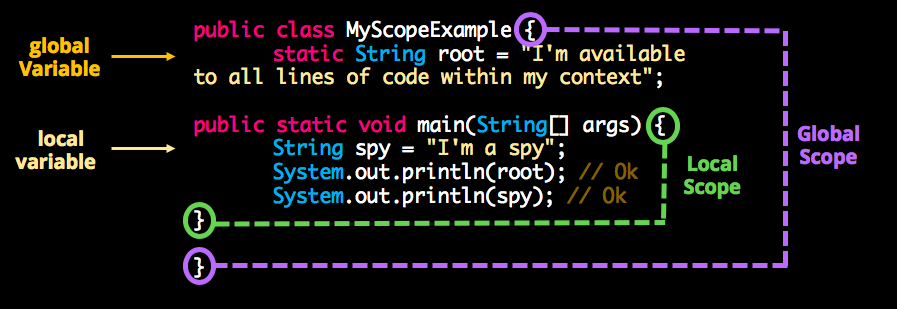

These variables are available for assignment within the class constructor. If we want each instance of a Car class object to have a color and speed associated with it, we can define instance variables color of type String and speed of type int within the class. They make up the state that each instance will possess. Instance VariablesĪs discussed in our Learn Java course, instance variables, also called instance fields, are data associated with a class object. A keyword this() is used in constructor overloading the next section of this article will provide a comprehensive description of its application with overloading. In the second exercise of this lesson, you will implement two versions of a queue: one with a maximum size as a constructor parameter and one without. You will see this in action in our Learn Queues: Java data structure lesson in this path. This gives the option to instantiate an object with different sets of arguments. Overloaded methods are distinguished by their number and type of parameters.Ĭonstructor overloading is a type of method overloading in which there are multiple constructors in a class. However with overloading, a single Java class can have multiple methods with the same name if they have different parameter lists. Method overloading is similar to overriding in that it involves methods with the same name. An implementation of method overriding can be found in exercise six of this lesson. For more detailed information regarding classes and subclasses, check out our lesson on Inheritance and Polymorphism in Java. The version of the method used is determined by the object that is used to call it. This is handy because it allows a subclass to implement a specific behavior for that method.

It is a feature in Java that allows a subclass to have a method with the same name and parameters as one declared in its parent class.

Method overriding is a topic that comes up a few times in this path. An example using a static variable can be found in the Instance Variables section of this article. main() method before the creation of an instance of that class, so it’s declared static. The compiler needs to be able to call the. main() method of a class is always declared as static this is because this method is the starting point of the program. static methods and variables are initialized only once upon execution and are shared by all instances of the class. It indicates that the declared entity is the same across all instances of that class and that it can be accessed even before an object of that class is created. Static is a keyword that can be added after the access modifier of a method or variable. bubbleUp() method is private because “bubbling up”, or adjusting a heap after adding an element, is an internal process, not something that needs to be performed outside the MinHeap class.add() on the other hand is a basic min-heap function so should be made public. We haven’t covered them in Java quite yet, but we can look at the MinHeap class to help us understand private vs. Min-heaps are a data structure that keeps track of the minimum element in a dataset. This is the modifier we will most commonly use, but to understand the scenarios in which to use the others, check out the Oracle documentation. It allows access to a class, method or variable not only from within the class in which it is declared, but outside as well.


 0 kommentar(er)
0 kommentar(er)
